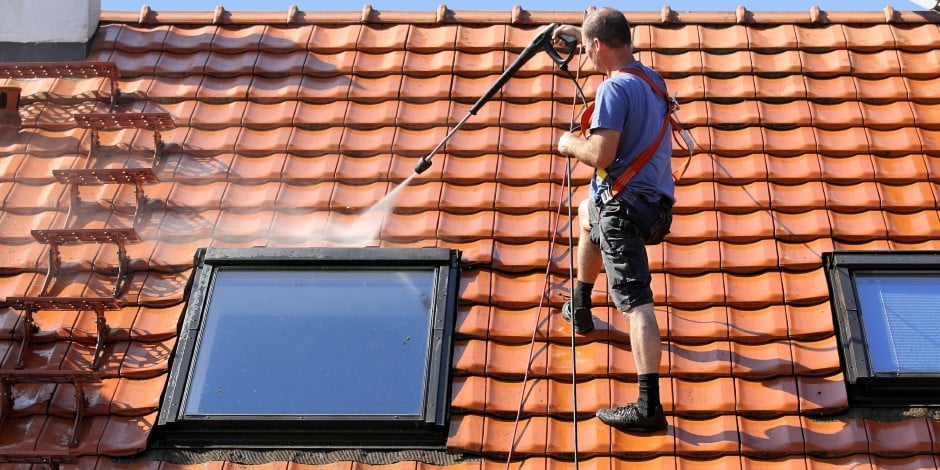12V vs 120V High Pressure Spray Pumps: What’s the Difference?

Shawn Glover, VP of Sales, Nov 17, 2020

We often field questions about the difference between 12V and 120V high pressure pump motors and which type of power we recommend. Not surprisingly, our answer is often filled with more questions.
That’s because knowing whether you need 12 volts or 120 volts requires a deeper exploration of how your pump will be used, where it will be operated, the kind of performance you need, and more.
To help determine whether you need a 12V or 120V pump motor, you’ll need to answer these important questions.
What is the power source?
Knowing whether you’ll run your pump off a battery (DC power) or have access to direct plug-in wall outlets (AC power) is a major factor for determining 12V or 120V.
12V DC Motors
A 12V DC motor runs off a battery. Battery-powered equipment is preferred when an application needs to be mobile and finding a place to plug in is either a hassle or simply not an option. High pressure 12V spray pumps are commonly used on truck-mounted equipment where the vehicle battery and alternator can be used.
In our everyday life, anything solar-powered is typically 12V DC. Automotive features like the radio, headlights, power windows, and other electronics also run on 12V DC, as do RV appliances, electric starters on watercraft and lawn tractors, and more...
Common commercial industry uses for 12V pumps include:
- Pest control and lawn care operators
- Portable sanitation
- Disinfection sprayers
120V AC Motors
A 120V AC motor has a cord that plugs into a wall outlet. When you need higher performance and longer run times, a 120V motor can deliver, assuming you have the convenience of a wall outlet at your disposal. Some are also used for permanent installations. An advantage of 120V AC motors is that the higher voltage requires lower amps, meaning smaller wire size and less expensive wiring circuits.
Everyday examples of 120V AC motors might include those used for power tools or home appliances like a vacuum, washing machine, or coffee maker.
Common commercial industry uses for 120V AC pumps include:
- Carpet extractors
- Restroom cleaners and many other indoor applications
- Pressure testing equipment
- Commercial cleaning
- And more
The application often dictates which pump motor you’ll need, as well as how you might want to address any troubleshooting issues. The bottom line? If portability is absolutely necessary for your application, opt for 12V. If high performance and extended run times are priorities, then choose 120V.
Are there safety considerations?
Safety is always a top priority for pump operators and the customers they serve. A 12V DC pump motor is ultimately safer than 120V AC. An operator runs the risk of electrocution with 120V AC, and there are many safety regulations and compliance considerations. Any 120V AC equipment requires GFCI protection in wet environments, such as restrooms, in the event it comes in contact with water.
Many outdoor applications are configured to be 12V DC because they’re inherently less dangerous in wet environments. That’s not to say there aren’t safety concerns with 12V DC motors; if the wiring circuit isn’t done correctly, it could result in an electrical fire.
Will electronic devices be used?
As a rule of thumb, anything that contains electronics operates on DC power – even if it is powered by a 120V AC outlet. To achieve this, electronics that plug into a wall outlet, such as a television or radio, are converted to DC voltage. When it comes to pump motors, engineers may choose the voltage that matches the electronic controller voltage for convenience.
Will the pump be used internationally?
If you’ve ever traveled overseas, you know that many countries use different types of electricity at higher output and lower frequencies, such as 220V AC. In the U.S., 120V AC motors are great, but they likely can’t be plugged into a wall outlet in a foreign country without a few “fireworks,” major damage, or injury. Engineers have to be careful to match the AC voltage and frequency that is used in each country.
If you don’t want to lose sleep about matching the AC voltages of international countries, you might consider a 12V DC motor because it is the same everywhere in the world.
Should you choose 12V or 120V?
These tips for determining which pump motor voltage is best should provide you with plenty of guidance. However, not every application is as straightforward as some of the examples shared here; your GPM and PSI requirements might also influence your decision. Our Guide to Proper GPM and PSI can give you additional recommendations, so be sure to access it below.
If you’re still uncertain about which voltage is appropriate for your unique commercial pump application, don’t hesitate to contact one of our pump experts. We’re happy to talk through your challenges and help you come up with a solution.



